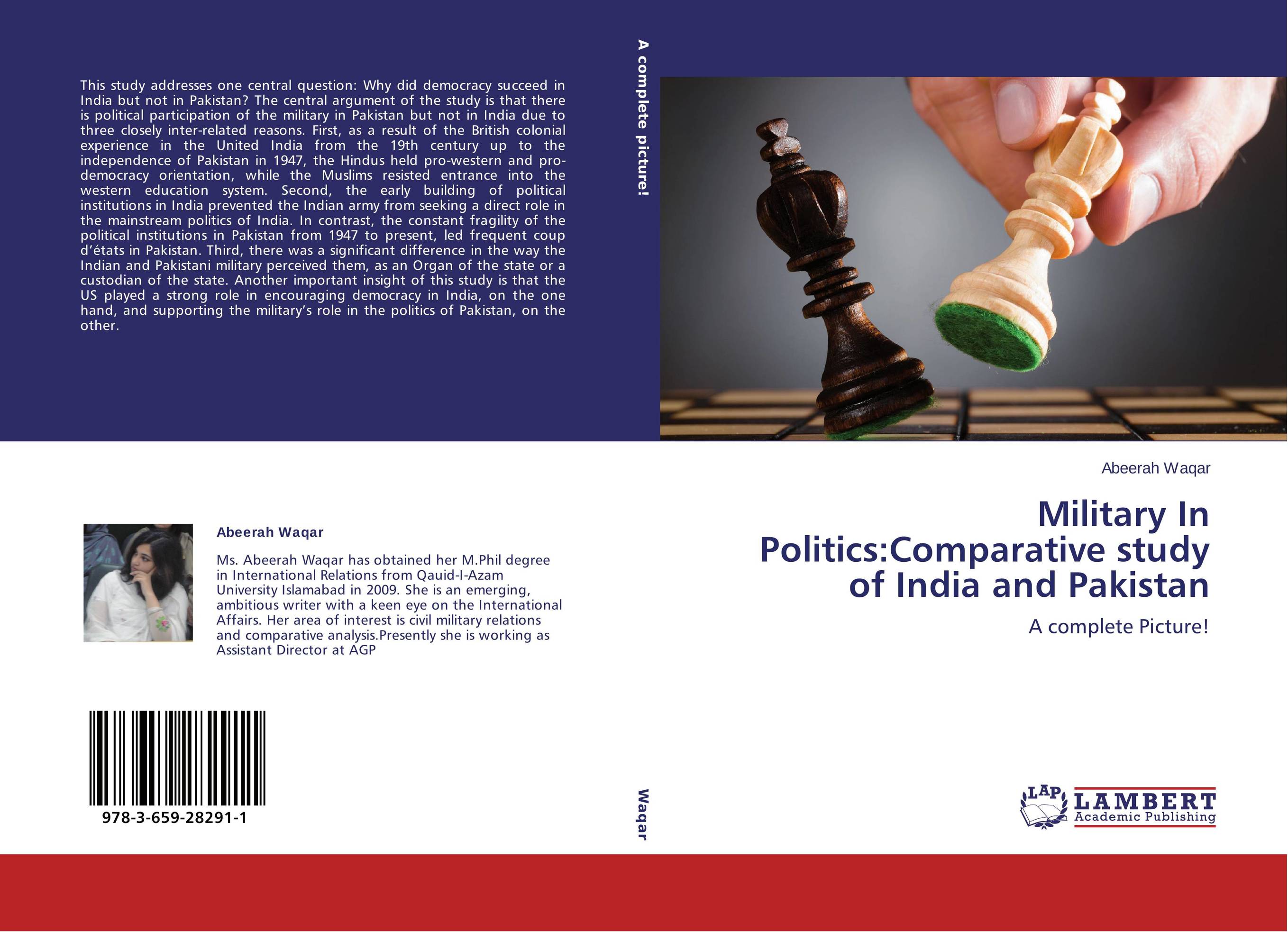| Поиск по каталогу |
|
(строгое соответствие)
|
- Профессиональная
- Научно-популярная
- Художественная
- Публицистика
- Детская
- Искусство
- Хобби, семья, дом
- Спорт
- Путеводители
- Блокноты, тетради, открытки
Military In Politics:Comparative study of India and Pakistan. A complete Picture!

В наличии
| Местонахождение: Алматы | Состояние экземпляра: новый |

Бумажная
версия
версия
Автор: Abeerah Waqar
ISBN: 9783659282911
Год издания: 2013
Формат книги: 60×90/16 (145×215 мм)
Количество страниц: 132
Издательство: LAP LAMBERT Academic Publishing
Цена: 39164 тг
Положить в корзину
| Способы доставки в город Алматы * комплектация (срок до отгрузки) не более 2 рабочих дней |
| Самовывоз из города Алматы (пункты самовывоза партнёра CDEK) |
| Курьерская доставка CDEK из города Москва |
| Доставка Почтой России из города Москва |
Аннотация: This study addresses one central question: Why did democracy succeed in India but not in Pakistan? The central argument of the study is that there is political participation of the military in Pakistan but not in India due to three closely inter-related reasons. First, as a result of the British colonial experience in the United India from the 19th century up to the independence of Pakistan in 1947, the Hindus held pro-western and pro-democracy orientation, while the Muslims resisted entrance into the western education system. Second, the early building of political institutions in India prevented the Indian army from seeking a direct role in the mainstream politics of India. In contrast, the constant fragility of the political institutions in Pakistan from 1947 to present, led frequent coup d’?tats in Pakistan. Third, there was a significant difference in the way the Indian and Pakistani military perceived them, as an Organ of the state or a custodian of the state. Another important insight of this study is that the US played a strong role in encouraging democracy in India, on the one hand, and supporting the military’s role in the politics of Pakistan, on the other.
Ключевые слова: comparative study, Military intervention, Political stability, feudalism, Islamization of Politics, Guardian Role



